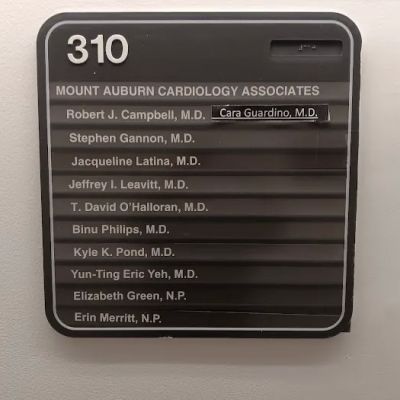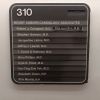- Understanding-Heart-Disease-and-High-Blood-Pressure-Risks
- The-Complex-Relationship-Between-High-Blood-Pressure-and-Heart-Disease
- Identifying-Risk-Factors-for-Heart-Disease-and-Hypertension
- Strategies-for-Preventing-and-Managing-High-Blood-Pressure
- Real-Life-Case-Study-The-Impact-of-Blood-Pressure-Management
- How-HeartCare-Hub-Can-Help-You-on-Your-Heart-Health-Journey
1. Understanding Heart Disease and High Blood Pressure Risks
Heart disease remains one of the leading causes of death worldwide, affecting millions every year. One of its most significant contributors is high blood pressure, also known as hypertension. To appreciate the seriousness of this health threat, it’s essential to understand what heart disease entails and why elevated blood pressure poses such a dangerous risk.
Heart disease broadly refers to various conditions that impair heart function, such as coronary artery disease, arrhythmias, and heart failure. High blood pressure increases the workload on the heart and arteries, causing damage over time. The risks linked with high blood pressure are often silent; many individuals remain unaware they have hypertension until a serious event like a heart attack or stroke occurs.
Recognizing these risks early and adopting preventive measures can drastically improve outcomes. This article will explore the relationship between high blood pressure and heart disease in detail, offering practical insights for prevention and management.

2. The Complex Relationship Between High Blood Pressure and Heart Disease
Hypertension is often dubbed the "silent killer" because it rarely shows obvious symptoms but steadily harms cardiovascular health. When blood pressure is elevated, the heart must pump harder to circulate blood through narrowed or stiffened arteries. Over time, this added strain can thicken the heart muscle, reduce its efficiency, and increase the risk of heart failure.
Moreover, high blood pressure damages arterial walls, making them more prone to atherosclerosis—a condition where plaques build up and narrow the arteries. This process restricts blood flow and increases the chance of heart attacks. It also raises the risk of stroke and kidney problems.
The relationship is bi-directional: uncontrolled hypertension accelerates heart disease progression, and existing heart conditions may worsen blood pressure regulation. Understanding this dynamic is crucial for patients and healthcare providers aiming for comprehensive cardiovascular care.
Capital Health Medical Center – Hopewell
capital health medical center hopewell
1 Capital Way, Pennington, NJ 08534, USA

3. Identifying Risk Factors for Heart Disease and Hypertension
While genetics play a role in heart disease and high blood pressure risks, lifestyle factors are often the dominant contributors. These include:
3.1 Diet and Nutrition: Diets high in salt, saturated fats, and processed foods elevate blood pressure and cholesterol levels, increasing cardiovascular risks.
3.2 Physical Inactivity: Sedentary lifestyles weaken heart muscles and contribute to weight gain, both of which heighten hypertension risk.
3.3 Stress and Mental Health: Chronic stress can trigger spikes in blood pressure and contribute to unhealthy habits like smoking or overeating.
3.4 Other Medical Conditions: Diabetes, obesity, and kidney disease often coexist with hypertension, compounding heart disease risks.
Understanding these factors allows individuals to take proactive steps toward reducing their risk. Regular screening for blood pressure and cardiovascular health markers is also critical, especially for those with family histories or other predisposing conditions.
4. Strategies for Preventing and Managing High Blood Pressure
Effectively controlling high blood pressure is key to minimizing the risk of heart disease. Here are detailed strategies that have proven effective:
4.1 Healthy Eating Habits: Incorporate fruits, vegetables, whole grains, and lean proteins while reducing salt intake. The DASH diet (Dietary Approaches to Stop Hypertension) is especially recommended for its evidence-backed benefits.
4.2 Regular Physical Activity: Aim for at least 150 minutes of moderate exercise per week, such as brisk walking or cycling, which strengthens the heart and lowers blood pressure.
4.3 Stress Management Techniques: Mindfulness meditation, yoga, and adequate sleep can lower stress hormones that elevate blood pressure.
4.4 Medication Adherence: When prescribed antihypertensive drugs, consistent use is vital to maintain controlled blood pressure and prevent complications.
4.5 Routine Health Monitoring: Regular check-ups help track blood pressure trends and adjust treatment plans as necessary.
Combining these approaches creates a robust defense against hypertension and its downstream effects on the heart.
5. Real-Life Case Study: The Impact of Blood Pressure Management
Consider the story of Mark, a 52-year-old man diagnosed with stage 2 hypertension. Initially unaware of his condition, Mark experienced occasional chest discomfort but attributed it to stress. After a routine health screening revealed dangerously high blood pressure, he was advised to adopt lifestyle changes and start medication.
Within six months of following a tailored diet plan, committing to daily walks, and adhering to his medication regimen, Mark’s blood pressure stabilized. More importantly, he noticed increased energy and reduced anxiety about his health. This case exemplifies how proactive management of high blood pressure can reverse damage trends and improve quality of life.
Stories like Mark’s highlight the importance of early intervention and continuous care in combating heart disease risks associated with hypertension.
6. How HeartCare Hub Can Help You on Your Heart Health Journey
Taking control of heart disease and high blood pressure risks requires access to reliable information, quality products, and supportive services. HeartCare Hub is dedicated to guiding you through every step of this journey. From expert advice on blood pressure management to recommendations for the best nutritional supplements and heart-healthy products, HeartCare Hub ensures you have the resources to make informed decisions.
Whether you need personalized support or want to explore trusted health services, HeartCare Hub provides a comprehensive platform tailored to your cardiovascular health needs. By choosing HeartCare Hub, you are investing in a healthier future with the right tools to manage and prevent heart disease effectively.






















Deborah Heart and Lung Center
deborah heart and lung center
200 Trenton Rd, Browns Mills, NJ 08015, USA